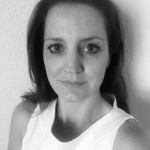Anne-Claire Hoyng - Legal & Competition Counsel, Booking.com International B.V.
1. Tell us your career story – how did you become an in-house lawyer?
Well I am actually not an in-house lawyer, but an in-house competition economist working for the legal department of Booking.com. After obtaining my master in economics I did an internship at an antitrust law firm in Washington D.C. that had in-house economists. It is there that I became interested in competition law. Coming back to Europe I started my first job at the Dutch Competition Authority as a case handler. I then pursued my career at the Dutch Telecom company KPN and subsequently the global cable operator Liberty Global having specialized in regulation and competition policy in the telecom sector. In 2013 I also started lecturing the course Economics of Competition Law at the University of Utrecht. In 2016 I joined Booking.com as competition counsel.
2. How do you see the relationship between competition law and competition economics? What do competition economists contribute to competition law?
For me competition law and competition economics are intertwined and therefore it is not about whether economics contributes to competition law. You can not apply or have a good understanding of competition law without understanding at least the basics of competition economics (and vice versa).
3. What does your day at work look like? What type of work do you focus on at Booking.com?
Like any in-house lawyer my work consists of advising the business in all areas that relate to competition law. But my work consists also of informing outside stake holders (mostly competition authorities) what we do and how we do it. What makes working at Booking.com as an in-house competition counsel interesting is that Booking.com is active all over the world and has 204 offices in 70 countries. Competition law is applied in some way or another in nearly all these countries and that makes the work so interesting and diverse.
4. What do you think will be the next big challenge in competition law?
I mostly see a challenge in applying and enforcing competition law to digital markets. The nature of these markets is so dynamic that it is important that when enforcing competition law this is taken into consideration. A specific product or geographic market definition for example can change really fast. Not only a future-oriented approach is therefore necessary but also a cautious attitude from competition authorities towards actual competition problems is necessary when it comes to these markets. Actual consumer harm should be guiding when enforcing competition law and not potential consumer harm I believe.
5. What has been the most exciting competition law case over the last 12 months?
Maybe not surprising but I believe The European Court of Justice judgement in the Intel case was quite welcome. That judgement is good news because were back to the effects based approach in order to establish an abuse of a dominant position. The more formalistic approach the European Commission took in its decision I believe caused dominant firms maybe to be very restrained while some behavior could have been very beneficial for consumers without harming competition.
Another recent case I found interesting is that the General Court recently annulled the European Commission’s clearance decision of the merger in 2014 of cable companies Ziggo and UPC. Competitor KPN had appealed the European Commission’s decision. Always interesting how three years after the clearance decision and when companies are fully merged such an annulment should be perceived.
6. What has been the toughest moment of your career so far? What has been your proudest moment?
The toughest moment was combining a PhD not related to competition law/policy with a full time job at the Competition Authority. It took a while but I did complete my PhD in the History of Economics in 2011. That might have actually also been my proudest moment.
7. What advice would you give to someone who is looking to start working in-house?
My advice would be to choose to work for a company where you have clear affinities with its business. I think the work of an in-house lawyer only gets more interesting if you are willing to understand the business and do not only focus on your area of expertise. Once you understand the business you will be able to help the business with creative solutions which gives a lot of satisfactions both to the business and yourself.

Competition Counsel at Booking.com, with over 10 years experience as a competition economist. She worked for Liberty Global, KPN and was senior case handler at the Dutch Competition Authority. Until last year she also was a lecturer in Economics of Competition Law at he University of Utrecht. She holds a PhD in Economics from the University of Amsterdam.
